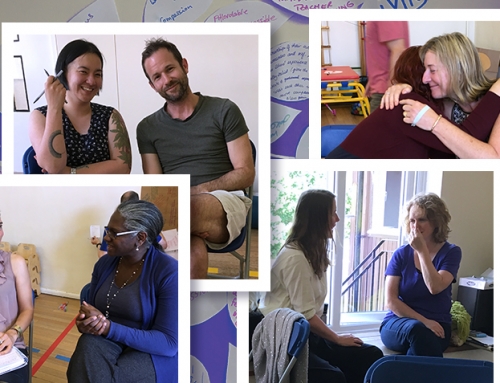by Lisa Milnor
Taking an active role in your health and happiness
Do you sometimes feel that your life is a whirlwind, a never ending treadmill with little or no time for yourself?
Do you ever find yourself lost in an inner world of thoughts of self-doubt, worries about the future, going over past events or just wishing things in your life were different?
Would you like to be as happy and as healthy as you can be?
Would you like to live your life with greater meaning, purpose and kindness?
Although we all have the innate capacity to be mindful many of us spend our lives on autopilot, lost in the trance of thinking which at best means we are missing the life we’re not living and at worse leads to distress and dis-ease.
There is however another way
Practicing mindfulness, i.e. shifting attention back to the present moment without judgment, leads to improved health and wellbeing. Mindfulness can be cultivated in many ways, including formal techniques like meditation and yoga, and informal practices such as using the breath or body to gently bring your attention back to whatever you are doing at that moment. Mindfulness has been taught and practiced for thousands of years and its many benefits are now being verified by a growing field of neuropsychological research. These benefits include reduced stress, anxiety and depression, improved attention, increased happiness, greater self-awareness and self-compassion, improved health and immune functioning, improved relationships and many more.
The practices of mindfulness and yoga allow us to cultivate awareness so that we can notice the activities of the mind and notice unhelpful thinking patterns. These practices will not eliminate life’s pressures but they can help us to respond to them in a calmer manner that benefits our mind, body and heart.
So how can we cultivate this mindfulness awareness to help us live a happier more fulfilled and caring life?
With the growing interest in mindfulness, access to these rich transformative teachings are now more widely available. You might want to attend a Mindful Yoga or Mindful Movement class where the ancient teachings of yoga and mindfulness are interwoven with the healing movement of the body. These classes usually involve gentle restorative movements and the teacher will provide modifications so that everyone is able to participate, even those with more limited body movement. You may seek out an introductory session to Mindfulness and there are many workshops running from between 2 hours to 2 days. There are plentiful websites on mindfulness to explore and an ever growing list of books on the subject. If having sampled mindfulness in whatever shape or form and like most people now have a sense of the huge benefits it can bring to your health and wellbeing you might then enrol on an 8 week course.
8 weeks sounds a long time.
What can I expect to be doing and how can I benefit?
These courses are usually between 1.5 to 2.5 hours and are run as group sessions providing a gradual introduction to mindfulness meditation and stress reduction techniques over eight weekly classes. Each class includes guided meditations, group discussions and practical exercises led by an experienced facilitator in a warm, friendly atmosphere.
Reported benefits of attending these courses include:
- A greater capacity for relaxation and calmness
- Less worry, anxiety and depression
- Enhanced emotional control, resourcefulness and resilience
- Improved self-confidence and creativity
- Better sleep quality
These courses are not designed however to be a relaxation class or group therapy session but rather offer valuable life skills, the development of which requires a personal commitment to maintaining a regular meditation practice. To help with this a workbook and meditation CDs are usually provided to facilitate independent practice and the integration of mindfulness into daily life.
Who are the courses suitable for?
The courses are suitable for beginners, as well as those wishing to refresh their mindfulness practice. Participants join for a variety of reasons; from simply taking the time to prioritise their wellbeing, to those who wish to adopt a complementary approach to managing health concerns such as high blood pressure, IBS, CFS/ME, fibromyalgia, anxiety and depression.
I’m really interested what should I do next?
Check out the CMI website to see if there are any teachers living in your area and if not then simple google your area and mindfulness and see what pops up. Go on, what are you waiting for, do it now and take an active role in your health and wellbeing – find out for yourself how to live a happier, more rewarding and compassionate life!
The present is the only time that any of us have to be alive – to know anything – to perceive – to learn – to act – to change – to heal. ~ Jon Kabat-Zinn
Further Information
To follow this and other posts on Mindfulness, Yoga and Ayurveda, please sign up to the CMI mailing list.







Leave A Comment